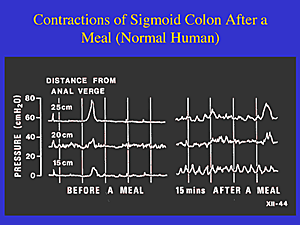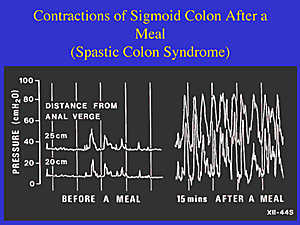| |
 |

Help Relieve All IBS Symptoms!
Results Can Last
More Than 5 Years!

Read the 5 Star Reviews!

Speak Up

Heather's Tummy Care works to end the deaths of albatross chicks from plastic ocean garbage.

Heather's Tummy Care works to end elephant slaughter.
Speak Up
|
 |
|
| |





December 17, 2015 ~ Brain-Gut Special Issue!
Scroll down for full newsletter or follow the links:
Ask Heather »
See the Brain-Gut Attack of IBS
News & Research »
The Potential Cure For IBS?
Special Interview »
Meet Michael Mahoney:
An IBS Hypnotherapist So Great, the Queen of England Wanted to See Him!

|
|
Have questions? Call toll free (866) 640-4942.
Outside the US (206) 264 8069.
Enjoy the newsletter!
Heather Van Vorous & Heather's Tummy Care
Over 10 Years of IBS Business!
|
Did a friend send you this newsletter? Sign up here for your own free subscription.
Researchers call gut-directed hypnotherapy a "cure" for IBS!
The Best Gut-Directed Self-Hypnosis Program for All IBS Symptoms
 
Gives an average 85% reduction of pain and bowel dysfunction symptoms.
Listen to IBS Audio Program 100 samples!
 Interview with Michael Mahoney, the Premier IBS Hypnotherapist Interview with Michael Mahoney, the Premier IBS Hypnotherapist
"How does hypnosis help IBS, and how did you come to create a self-hypnosis program especially for IBS patients?"
I was originally asked to look into treating patients with IBS by the gastroenterologists in my medical centre here in Cheshire, England, who had given up all hope of helping them. These doctors called their IBS patients their "heart-sinks" because every treatment that could be done was done, but to little or no avail. So they came to me.
I had to learn about IBS from scratch, and did so, not only through my professional studies but by interviewing patient after patient and learning about their fears, anxieties, horrible episodes of "emergency" diarrhea, panic attacks for the loo, and public accidents of untold embarrassment. I learned about the heartache and frustration of a patient population that had little or no recourse for relief.
As a clinical hypnotherapist, I knew that other medical conditions could be treated through this modality, with results running the range of alleviation of a given condition to full recovery. But IBS was a new one, and I was determined to help these patients because their suffering was indeed affecting their quality of life.
First, let me digress a bit. Some readers, perhaps unaware of the many studies over the past 20 years using clinical hypnotherapy as medical treatment, may have visions of watches swinging and people clucking like chickens. Clinical hypnotherapy uses the person's own internal resources to bring about symptom reduction and a path towards healing. As humans, we are in and out of this state throughout the day, as it is merely a common state of concentration similar to being very focused - for example, driving home on "auto-pilot" as we sometimes do. Even while hypnotized, the patient, not the therapist, remains in full control. Hypnotherapy induces a state of relaxation while the patient is awake, and allows helpful suggestions such as those aimed at controlling health problems to be directed into the subconscious mind. It is a natural, normal state, and I have been privileged to help people with many problems through this treatment method for nearly 20 years.
In 1991, I began working with referred IBS patients at no charge, since I was learning about them and their needs. I spent nearly two years researching IBS. I developed specific IBS hypnotherapy processes for the treatment, incorporating ongoing feedback from the patients while providing my own funding for research and development. When word got out that IBS patients were actually receiving successful treatment, I had people travel long distances to obtain therapy from me; some of them were coming 100 miles or more. Many IBS patients were too sick to easily travel, however, and had a great fear of not being near the bathroom, or they were afraid of having a bowel accident on the way; for them, coming to see me posed a problem. Today, when people ask what kept me working on my IBS program, even when faced with strapped finances and professional peer review, I could only think of those first patients and their desperation. That will be remembered for the rest of my life.
Sadly, many (if not most) of the IBS sufferers I saw had to deal with doctors who did not recognize or fully appreciate the emotional impact of IBS - for IBS is far from a purely physical condition. Many readers will be all too familiar with the emotional toll IBS can take, including anxiety, weepiness, some depression, resignation, and disheartenment. I well understood the frustration, fear, and pain that the IBS patient suffers. I also know first-hand the anger that can come from being dismissed by physicians who don't feel that IBS is a "real" condition that causes real suffering, and who simply refuse to listen to those who offer new avenues of help.
Patients often reported that dismissal of their concerns served only to make both their emotional and physical symptoms even worse. IBS needs an empathetic approach. Just dealing with the symptoms of Irritable Bowel Syndrome is not enough; the individual has to learn to rebuild internal energy. After years of pain, and being told by various medical professionals that there is nothing that can be done, many sufferers feel emotionally drained.
In the IBS Audio Program introduction I explain about our 'emotional pot of energy' and our 'emotional reserves' and how these have to be attended to, in addition to the physical aspects of the condition. Without the emotional will and strength to seek and persevere in finding a solution, recovery is often difficult. This 'emotional energy' has to be recognized, replenished and managed. To move into recovery we have to work at feeling better, learn new ways of coping, and become familiar with the new positive feelings and thoughts. It is then that we are taking part in our healing.
I've also found many IBS patients have to deal not only with dismissive doctors, but with family members and those in their lives who more or less disregard their problem. They'll be accused of "faking" it, or told to just "quit obsessing about it", or given some similar off-hand cutting remark. I felt that this was another area to be addressed, so I created a recording called the "IBS Companion" that speaks of the humiliations, fears, medical evaluation embarrassments and ordeals that an IBS patient must go through, and how the family can help the patient, rather than add to their distressing situation. One of my patients, upon listening to this recording, told me that she cried, as it was the first time she felt validated as a real human being by someone who understood her condition and its impact on her world. IBS had cost her a good deal of her life, and the recording was the first time she felt real empathy.
By mid 1997, I incorporated all the new processes, information, and delivery methods I had learned for IBS hypnotherapy onto audio tapes, so patients who were housebound or far away would no longer have to travel. These recorded sessions are today known as the IBS Audio Program 100™ and are recorded onto CDs.
My work using clinical hypnotherapy for IBS has now been entered into the Guild of Health Writers Awards / Foundation of Integrated Medicine, and is considered one of "80 excellent examples of integrated medicine in the United Kingdom." As a member of the Primary Care Society for Gastroenterology (PCSG), I was invited to speak about my work in London, at the annual scientific meeting of the society, to gastro-interested medical professionals from all over the UK. I'm also a member of the International Functional Brain-Gut Research Group, and founder of the UK Register of IBS Therapists.
In March of 2003, I had the honor of being given first place in the UK's Top Hypnotherapist listing, in the 'Top Brass' section of the Business pages of the Independent. This was not only a thrill, but brought me to the realization that my work had gained recognition because it dealt with an enormous patient population that was sorely overlooked and desperately needed help. This was not so much a validation for my work as it was a validation to the sufferers like you.
In July 2010, I was invited by The Lord Chamberlain to attend Queen Elizabeth's Garden Party by recommendation from UK Trade and Investment, for recognition of my work with patients which encompasses many treatment areas such as IBS. This recognition is a great honour and validates many years of hard work!
Many thanks to those of you who have successfully used the IBS Audio Program 100™, have shared your kind words with others, and offered your personal testimonials. And may I extend many thanks to all of you and to Heather and Will for letting me share a bit about my program and my work. I wish you all a healthy, happy holiday - many blessings and joy!

|
|
~ Michael Mahoney
Creator of the IBS Audio Program 100
Premier Hypnotherapist and Super Nice Guy!
|
Researchers call gut-directed hypnotherapy a "cure" for IBS!
The Best Gut-Directed Self-Hypnosis Program for All IBS Symptoms
 
Gives an average 85% reduction of pain and bowel dysfunction symptoms.
Listen to IBS Audio Program 100 samples!
Compare for yourself! The pictures above show the huge difference in the quantity and quality of tea per teabag. The price comparison here is even more shocking!
 What's the Only Potential Cure for IBS?
What's the Only Potential Cure for IBS?
I'm often asked if there are any cures for IBS. The answer so far? A definite maybe!
At this point, gut-directed hypnotherapy is the only treatment that works directly on the brain-gut dysfunction underlying all IBS symptoms. This means hypnotherapy can alleviate diarrhea, constipation, pain, gas, bloating, and more. As a result, some researchers have called hypnotherapy the first "cure" for IBS.
While I'm always trying to feature personal feedback from people with IBS who have tried hypnotherapy, it's terrific to see the hard science behind this treatment. Gut-directed hypnotherapy is in fact one of the most thoroughly researched and well-established treatments for all IBS symptoms.
I've compiled a number of significant research articles and reviews on hypnotherapy for IBS below. These clinical trials are drawn from Gut, Lancet, Gastroenterology, and other internationally respected medical journals. The study results are consistent and overwhelmingly positive. For in-depth information about self-hypnosis for IBS, see the IBS Audio Program. ~ Heather
85% of Those Helped by IBS Hypnosis See Benefits Up to 7 Years Later
Scandinavian Journal of Gastroenterology noted in 2012 that in their review studies of IBS hypnotherapy, use of the healthcare system as a result of stomach and bowel symptoms was reduced by 70%.
Gastroenterologists Call for Wide Use of Hypnotherapy in IBS
Leading gastroenterologists are calling for hypnotherapy to be used more widely in treating irritable bowel syndrome. Researchers at King's College London note that in one study at Withington Hospital, 12 weeks of hypnotherapy helped 71 percent of patients ease their IBS symptoms for five years after the treatment.
Irritable Bowel Syndrome Audio Program Celebrates Over 10 Years of Success
Called by some "the best kept secret in gastroenterology", the IBS Audio Program 100 developed by Michael Mahoney, Clinical Hypnotherapist at Guardian Medical Centre in Cheshire, England, is now used by IBS sufferers in 41 countries. The IBS Audio Program was developed specifically to manage both the physical and the emotional aspects of IBS. Hypnotherapy has now been listed as a treatment option for IBS in the UK's National Institute for Health and Clinical Excellence (NICE) guidelines.
Hypnotherapy for IBS - Systematic Review Shows Long-Lasting Symptom Relief
Z Gastroenterol. 2009 Nov;47(11):1153-9.
Data from published hypnotherapeutic interventions with approximately 800 patients show long-lasting symptom relief.
Hypnotherapy Relieves More Than Just IBS Symptoms
Int J Clin Exp Hypn. 2009 Jul;57(3):279-92.
This study noted that people with functional gastrointestinal disorders such as irritable bowel syndrome and dyspepsia suffer from a range of severe symptoms that often substantially erode their quality of life. These conditions are notoriously difficult to treat, with many patients failing to improve despite being prescribed a wide variety of conventional medications.
As a consequence, the potential benefits of hypnotherapy have been explored with evidence that this approach not only relieves symptoms but also appears to restore many of the psychological and physiological abnormalities associated with these conditions.
Hypnotherapy Called a Cure for Pediatric Irritable Bowel Syndrome.
2007 Digestive Disease Week Conference, Presentation title: Functional Gastrointestinal Disorders: Psychosocial and Psychotherapy. Abstract 914.
Gut-directed hypnotherapy has been shown to be highly effective in the treatment of adult patients with IBS. This study evaluated the treatment approach in a pediatric population.
53 children between the ages of 8 and 18 years who had been diagnosed with IBS or Functional Abdominal Pain were randomized to standard therapy or to 6 hypnotherapy sessions of 30 minutes over a 3-month period. The endpoints of the study were pain intensity, pain frequency, nausea, headache and appetite. The investigators defined a cure as a greater than 80% improvement in pain.
After 1 year, the cure rate reached 85% for hypnotherapy-treated subjects and 25% for those receiving conventional therapy. The authors concluded, "Gut-directed hypnotherapy is highly superior to conventional therapy in the treatment of children with longstanding FAP or IBS."
Effect of gut-directed hypnotherapy upon quality of life in IBS patients.
J Clin Nurs. 2006 Jun;15(6):678-84.
This study quantified health-related quality of life in a group of 75 irritable bowel syndrome patients and measured changes following a treatment program of nurse-led gut-directed hypnotherapy. It is well recognized that health-related quality of life can be severely impaired in patients suffering from the irritable bowel syndrome. Current conventional treatment for irritable bowel syndrome is often unsatisfactory. This study followed 75 patients and determined that gut-directed hypnotherapy has a very positive impact on health-related quality of life with improvements in psychological well-being and physical symptoms. It appears most effective in patients with abdominal pain and distension.
A 27-Sep-2005 press release featured Peter Whorwell, Professor of Medicine and Gastroenterology in the University's Medical School and Director of the South Manchester Functional Bowel Service, who has been researching the use of gut-directed hypnosis for over 20 years. Most recently, two hundred and fifty patients who have suffered from IBS for over two years were given twelve one-hour sessions, during which they were given an explanation of how the gut works and what causes their symptoms. "IBS is ideal for treatment with hypnosis, as there is no structural damage to the body," explained Professor Whorwell. "During the hypnotherapy, sufferers learn how to influence and gain control of their gut function, and then seem to be able to change the way the brain modulates their gut activity."
Former patient Sonia Pinnock said, "I suffered from IBS and was on medication for nearly 20 years, but could get little relief from my symptoms. Since visiting the clinic for 12 hypnotherapy sessions last year however they've disappeared completely - the difference it's made to my quality of life is indescribable."
Another happy patient Christine Walsh continued, "After my hysterectomy I suffered from IBS for about five years, and it totally ruined my quality of life. I couldn't plan holidays or leisure activities and at work I was often doubled-up in pain. But since having weekly hypnotherapy sessions for three months I've now been free from IBS for five and a half years - the treatment has totally changed my life."
Hypnotherapy Benefits Last at Least Five Years.
Gut. 2003 Nov;52(11):1623-9.
204 patients prospectively completed questionnaires scoring symptoms, quality of life, anxiety, and depression before, immediately after, and up to six years following hypnotherapy. All subjects also subjectively assessed the effects of hypnotherapy retrospectively. 71% of patients initially responded to therapy. Of these, 81% maintained their improvement over time while the majority of the remaining 19% claimed that deterioration of symptoms had only been slight. With respect to symptom scores, all items at follow up were significantly improved on pre-hypnotherapy levels.
Researchers call gut-directed hypnotherapy a "cure" for IBS!
The Best Gut-Directed Self-Hypnosis Program for All IBS Symptoms
 
Gives an average 85% reduction of pain and bowel dysfunction symptoms.
Listen to IBS Audio Program 100 samples!
 What's a Brain-Gut Attack? Why Would Hypnosis Help? What's a Brain-Gut Attack? Why Would Hypnosis Help?
Irritable Bowel Syndrome, also known as IBS, is defined by the Rome Criteria diagnostic guidelines, and is characterized as a brain-gut dysfunction. What on earth does this mean?
In plain English, it means that IBS symptoms result from a hypersensitivity of the nervous system of the gut (your gut overreacts), along with misinterpretations of the nervous system messages from the gut by the central nervous system and the brain (your brain overreacts to your gut's overreaction).
Basically, this circuit (from gut to brain and brain to gut) appears to be abnormal in patients with Irritable Bowel Syndrome, though the exact abnormalities remain unclear.
(For full information about the brain-gut dysfunction and Irritable Bowel Syndrome overall, get The First Year: IBS, an essential guide to successfully managing the disorder. This is extremely helpful for both the newly diagnosed and those who have been struggling with IBS for years.)
Remarkably, PET scans of the brains of people with IBS show pronounced differences in the activation of certain parts of the brain relating to perception and pain (versus normal individuals). MRI brain scans have shown similar results. Yes, this means that those of us with IBS have a brain disorder, not just a gut disorder.
This also means that IBS is undeniably a physical problem. Simply put, the brain-gut interaction of people with IBS influences their bowel pain perception and motility. In a nutshell, the processing of pain information within the central nervous system varies between normal individuals and those of us with IBS, with the result that we can experience even normal GI contractions as painful.
The interactions between our brains, central nervous systems, and GI systems are just not functioning properly. We have colons that react to stimuli that do not affect normal colons, and our reactions are much more severe.
The end result is heightened pain sensitivity and abnormal gut motility, in the form of irregular or increased GI muscle contractions. It is this gut overreaction and altered pain perception that cause the lower abdominal cramping and accompanying diarrhea and/or constipation that characterize IBS.
The fastest and easiest way to break this cycle, stop the gut overreaction, and manage symptoms on a daily basis is to use a prebiotic 100% soluble fiber supplement that's formulated specifically for IBS. That will help regulate your gastrocolic reflex and keep peristalsis normal. This prevents abdominal spasms and cramps, and relieves both diarrhea and constipation.
Interestingly though, while an underlying cause of IBS might well be in our brains, there is still a physical abnormality in the way our colons function. This dysfunction is actually visible (shockingly so) in the medical imaging tests below.

This is a normal gut 15 minutes after a meal.

This is an IBS gut 15 minutes after a meal. Holy cow!
Illustration from Irritable Bowel Syndrome (IBS): Examining New Findings and Treatments. Authors: Marvin M. Schuster, MD; Michael D. Crowell, PhD; Nicholas J. Talley, MD, PhD. Continuing Medical Education Activity, Johns Hopkins School of Medicine, October 26, 2000, via Medscape. Used with permission.
Typically, the majority of the time the colon is still. However, following a meal, the stomach triggers something called the "gastrocolic reflex." This response occurs when food passes from the stomach into the upper part of the small intestine.
Normally, the gastrocolic reflex causes periodic contractions of the colon at different points along its length, at timed intervals. These segmented contractions regulate the flow of waste, and keep it in contact with the bowel wall, allowing water to be absorbed.
Finally, peristaltic contractions of the colon propel the waste to the rectum and then out of the anus via evacuation by a bowel movement. Total average transit time through the entire 30-foot digestive system, from mouth to anus, is between 12-24 hours for healthy individuals with high-fiber diets, and 48-72 hours for most Americans eating a typical Western (high fat/animal protein, low fiber) diet.
Where Things Go Wrong...
Unfortunately, how the digestive tract is supposed to work is not exactly how it does work for those of us with IBS. The key problem seems to be with the gastrocolic reflex. Specifically, research has found that many IBS patients have highly abnormal ones.
Our colons have disorganized and significantly more violent and prolonged contractions (leading to diarrhea), or almost no contractions at all (resulting in constipation).
Amazingly, researchers have found that while healthy people have between 6-8 peristaltic contractions in their colon within a 24-hour period, IBS sufferers with diarrhea have as many as 25 peristaltic contractions per day, and constipation-prone IBS patients have almost none.
Add to this bowel dysfunction the heightened pain perception resulting from our abnormal brain-gut interactions, and you've got the recipe for disaster...spelled I-B-S.
There's vivid demonstration of this in the images above. They show the huge difference between the after-meal contractions of a normal person's lower (sigmoid) colon and the contractions of the lower (sigmoid) colon in a person with IBS. The left half of both illustrations shows the colon contractions before a meal, and the rates are very similar and quite modest.
Just fifteen minutes after eating, however, the differences in colon contractions as shown on the right sides of the graphics are dramatic. Given the almost off-the-chart severity of the spasms (measured by the vertical axis in terms of pressure) in the IBS patient, it's easy to literally see exactly why the pain and bowel dysfunctions of this disorder can be so extreme.
As you read these graphics, don't be intimidated by the "distance from anal verge" legend for the horizontal axis of the chart. All that term basically means is how far up into the colon from the anus the contractions are being measured (they're either 15, 20, or 25 centimeters up into the colon from the outside of the anus).
In other words, the contractions triggered by the gastrocolic reflex from the stomach are affecting the very lower end of the colon just fifteen minutes after a meal has been eaten. This gives a crystal clear explanation for how an attack can hit you so fast and so hard after - or even while - eating. Personally, I can't look at these charts without having flashbacks to all the times I've had to rush from the dinner table before I'd even finished my meal.
So now that you know it's a brain-gut dysfunction that underlies all IBS symptoms, what can you actually do about it?
My top recommendation is gut-directed hypnotherapy. It's one of the most promising methods of treating IBS permanently (researchers have actually called it a cure).
This is the only treatment that actually deals directly with, and can successfully change, the brain-gut dysfunction. See the News and Research section for an overview of articles and reviews of hypnotherapy for IBS, including researchers' conclusions that hypnotherapy not only relieves IBS symptoms but also appears to restore many of the psychological and physiological abnormalities associated with these symptoms.
In other words, if your goal is to physically change the brain-gut disorder that actually causes IBS symptoms in the first place, gut-directed hypnotherapy is not just the only option, it is a truly terrific one.
Hypnotherapy specific to IBS has long been a mainstream treatment in Great Britain, where this treatment was originally pioneered. However, it has now been embraced by US gastroenterologists and GI researchers as well. It is one of the most thoroughly researched and well-established therapies for all IBS symptoms, and the only one so far that has demonstrated potential for permanent results.
There is much to gain and literally nothing to lose by trying hypnotherapy for IBS to break the cycle of the brain-bowel dysfunction.
~ Heather


Shop at Heather's Tummy Store for IBS
HelpForIBS.com
The only store that's just for IBS - so we only carry the very best

You're on this newsletter list because you have expressed interest in IBS news and information.
Unsubscribe Here
Change your newsletter email address here.
If you are viewing this newsletter on a website and would like to subscribe for email delivery, please "Join the IBS Newsletter" here.
ANTI-SPAM PRIVACY & SECURITY POLICY
HelpForIBS.com
Heather's Tummy Care
80 S. Washington St, #304
Seattle, WA 98104 USA
© 2015 Heather Van Vorous, Heather's Tummy Care. All rights reserved.
Authored by Heather Van Vorous. May not be reproduced without permission.
USA Copyright Office Registration Number TXU 1-270-858 and others.
|
|
| |